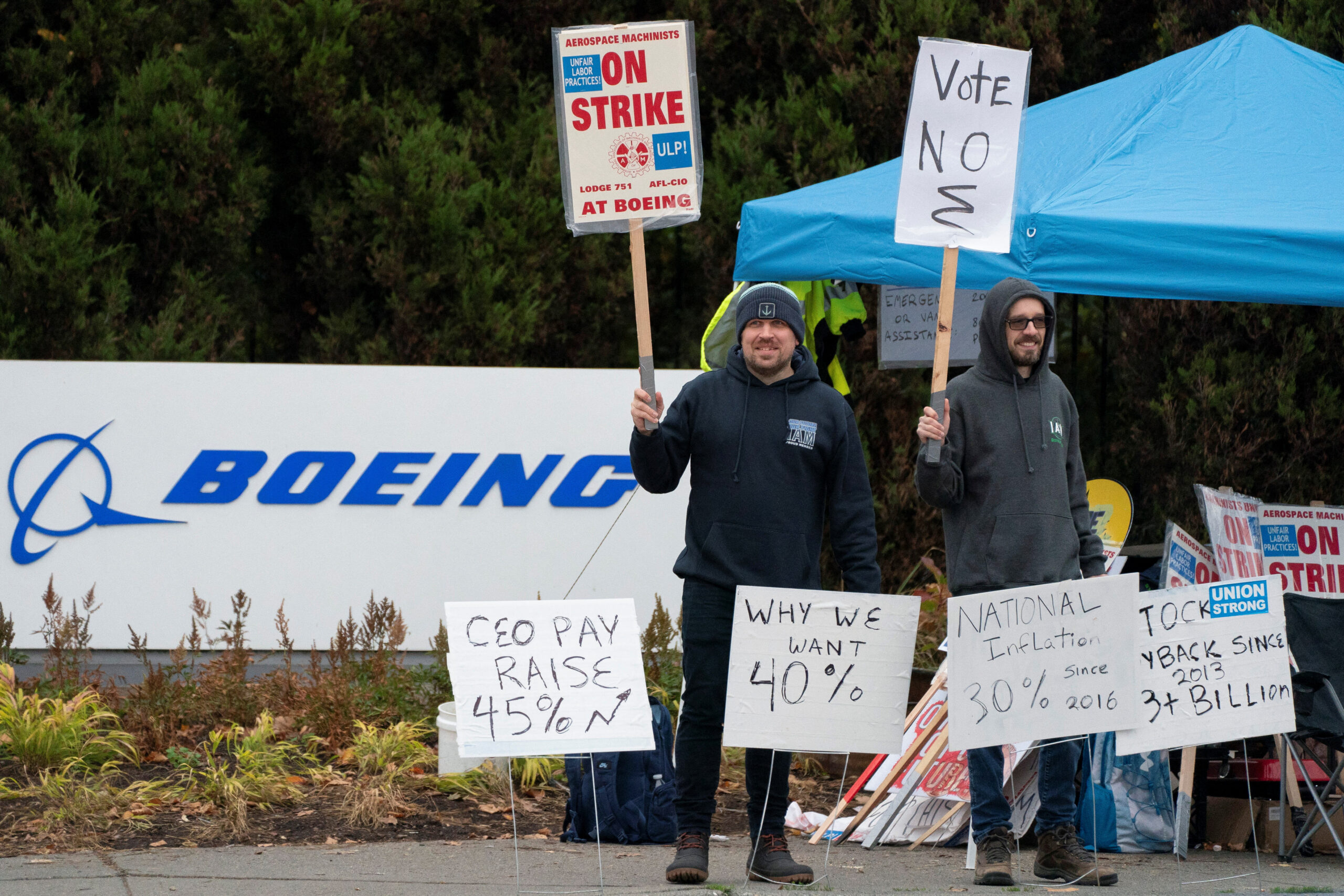New York — In a dramatic conclusion to a tense labor dispute, Boeing employees have voted to ratify a new contract, marking the end of a strike that has drawn national attention and underscored the ongoing struggles of American workers for fair treatment and compensation. The outcome of the vote, in which 59% of members from the International Association of Machinists (IAM) chose to accept Boeing’s revised offer, signifies a hard-fought victory for the workforce, which had previously rejected two contract proposals from the aerospace giant.
The strike, which began on September 13, 2024, saw more than 33,000 IAM members walk off the job in pursuit of better wages and working conditions. Their determination to advocate for their rights resonated within the community and throughout the nation, exemplifying the resilience and unity of labor movements in contemporary America. Jon Holden, the IAM’s chief negotiator and president of the largest local union at Boeing, expressed pride in the collective efforts of the members, stating, “This is a win for our workforce. They stood strong and achieved significant gains through their solidarity. We are ready to move forward together.”
The ratified contract brings substantial financial benefits to the workers, including an immediate salary increase of 13%, as well as 9% raises in each of the following two years and an additional 7% in the final year of the contract. Workers will also receive a substantial ratification bonus of $12,000, which they may contribute to their retirement savings through 401(k) accounts. While these improvements represent a notable advancement in workers’ pay, the absence of a restored pension plan remains a contentious issue among many employees, particularly for those who feel strongly about the loss of the traditional defined benefit retirement plan in previous negotiations. Holden acknowledged this concern, noting that many members continue to fight for the reinstatement of their pensions, underscoring the need for ongoing dialogue between union representatives and company leadership.
From Boeing’s perspective, the financial fallout from the strike has been severe, with estimated losses exceeding $6.5 billion during the duration of the labor action. This staggering figure reflects not only the immediate impact on the company but also the broader implications for the U.S. economy, as Boeing’s operations are interwoven with a vast network of suppliers and partners. The strike has disrupted the manufacturing process and halted deliveries of Boeing’s aircraft, further complicating an already precarious financial situation that has seen the company grapple with the repercussions of the 737 Max grounding. The consequences of these labor disputes have rippled across industries, affecting commercial airlines that depend on timely deliveries for their operations.
In a statement regarding the contract’s approval, Boeing CEO Kelly Ortberg emphasized the importance of unity and collaboration moving forward. “While the past few months have been difficult for all of us, we must recognize that we are all part of the same team,” Ortberg stated, reflecting on the necessity of fostering a cooperative relationship between management and labor. His leadership, emerging in the wake of the strike, signals a commitment to rebuilding trust and ensuring that employee voices are heard in the decision-making process.
As Boeing employees prepare to return to work, the company stands at a crossroads, with the opportunity to enhance its operational practices while honoring the contributions and sacrifices made by its workforce. This agreement is not merely the conclusion of a labor dispute but a significant milestone that illustrates the potential for positive change when workers stand united. The challenge now lies in Boeing’s ability to navigate the complexities of the aerospace market while maintaining a commitment to fairness, transparency, and the well-being of its employees. As production ramps back up, both the union and company leadership must work together to ensure that the lessons learned from this strike translate into a more equitable and productive future for all involved.








